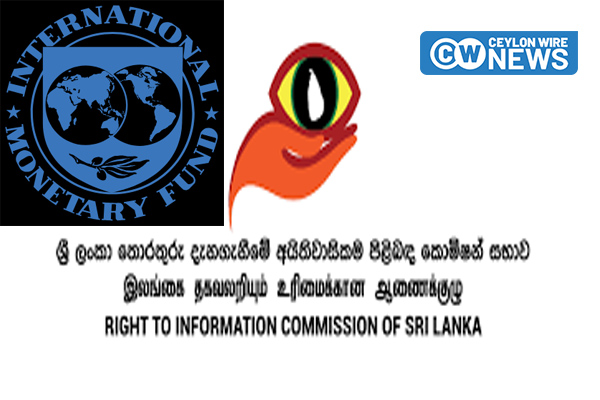The Sri Lankan Government has been called upon by the International Monetary Fund (IMF) to establish policies and rules that protect the Right to Information Act and the reach of the Right to Information Commission (RTIC) with ‘recent proposed bills’ assessed as potentially constraining the ambit of the RTIC, excluding ‘sensitive’ matters from its jurisdiction.
With ‘particularly acute’ concerns arising around privacy and anti-terrorism draft laws, the IMF has warned that if an appropriate balance is not evidenced, there is a significant risk that an ‘outstanding example of transparency’ may be stripped of its effectiveness.
The IMF’s recommendations are contained in a Governance Diagnostic Report released on September 30 following an assessment mission from March 20 to 31 this year.
The IMF mission focused on corruption vulnerabilities and governance weaknesses. It concluded that the RTIC has
demonstrated ‘the effectiveness of its outreach and the value associated with the information obtained’ by citizens, pointing to a 2018 RTIC directive to Parliament to release information on the submission of declarations of assets and liabilities by parliamentarians. This was upheld by the Court of Appeal upon an appeal filed by Parliament.
The IMF said the RTIC’s role is particularly ‘consequential’ for anti-corruption efforts as requests for information come from groups traditionally most exposed to corruption and the abuse of public power including women and minority groups. Enhancing and enlarging the RTIC’s ability to fulfil its mandate is ‘vital for inclusive governance’, the mission report said.
Meanwhile, assessing that proactive (voluntary) disclosure of information by the public sector is ‘uneven,’ the IMF observed that the RTI Act’s nodal agency, the Ministry of Media, must effectively support ‘more proactive and consistent disclosure of information.’ Among eighteen priority recommendations, it has listed a ‘transparency portal’ to be established by the Ministry of Finance by March 2024 to carry procurement information on all projects above LKR 1 billion with oversight by the RTIC.
The mission report also stated that certain provisions of Sri Lanka’s Anti-Corruption Act, No 9 of 2023 imperil whistleblowing, and emphasised that the Commission to Investigate Allegations of Bribery and Corruption (CIABOC) must establish clear implementation rules to protect whistleblowers.









